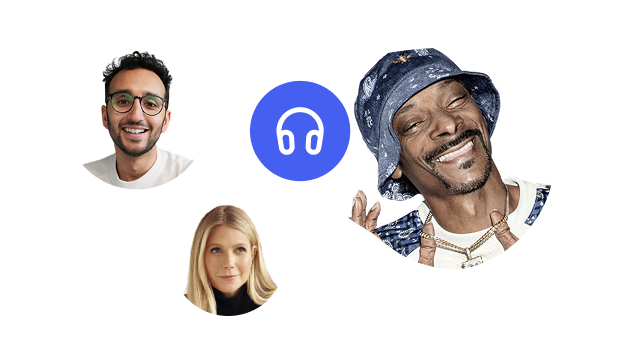Is it “cheating” to listen to a book? (audiobooks)
Many people believe that listening to audiobooks is cheating. Likewise, they think listeners don’t have to use any skills to understand the content, but is that really the case?
Let’s explore the answer.
Listening to books isn’t cheating - Here’s why
Before we reveal why listening to audiobooks isn’t cheating, let’s first consider the premise of those who claim this.
They suggest you get the same reward associated with the written word while putting in minimal effort. You’re not missing out on anything, and you don’t have a less rewarding experience. You’re cheating by getting the rewarding part without making an effort associated with reading.
This argument implies that listening requires less effort than reading. Although this is true to an extent, it’s only somewhat applicable to younger children (fifth grade and younger).
According to Daniel Willingham, a professor of psychology at the University of Virginia, listening isn’t cheating because it requires the same skills as reading. After identifying the words in a text, you use the same mental processes to understand the sentences and paragraphs formed by them.
Hence, listening and reading both lead to comprehension. You understand the written and spoken words in your brain through a procedure called decoding. That’s why many studies show that learners who listen vs. read the same text achieve similar or even identical test results.
Professor Willingham isn’t the only one who supports listening and reading as viable forms of understanding texts. Melissa Dahl, the co-founder of “Science of Us,” is another prominent individual who supports this viewpoint.
As a result, you shouldn’t be ashamed of listening to audiobooks. It’s not cheating by any stretch of the imagination.
Audiobooks can be helpful
Now that we’ve established you’re not a big cheater for listening to audiobooks let’s delve deeper into the advantages of this format. Audiobooks can indeed be helpful. In fact, they can be more beneficial than reading. Here’s how.
Overcoming learning disabilities
Reading might not be convenient for you if you have dyslexia, a visual disability, or another learning impairment. You may struggle to understand printed books and short stories, so you need another way to digest information.
Audiobooks are a perfect tool. They enable you to explore any book in an easily understandable format without trying to make out individual words. This way, you can immerse yourself in amazing plots on Speechify, Audible, and other audiobook platforms.
The audio format is also good for you when re-reading. By absorbing the information in a different form on your second go, you’re less likely to find the content boring. You can also discover new details.
Enhancing literacy skills
Listening comprehension goes a long way in improving literacy skills.
For instance, if you’re struggling to keep up with other book club members, audiobooks can be a great tool. They help you spot otherwise unnoticed plot points. Plus, the narrator and their intonation can more effectively guide you through text.
Best of all, audiobooks are suitable for all reading levels. Whether you’re having trouble with a seventh-grade textbook or college research paper, listening to its audiobook can make a world of difference in terms of comprehension.
Overall, this podcast-like format yields the following literacy benefits:
- Higher reading accuracy
- Increased reading speed and fluency
- Expanding vocabulary and teaching pronunciation
- Optimizing comprehension and test scores through multi-modal learning
Alleviating eye strain
You may spend eight or nine hours a day staring at computer or smartphone screens, which can result in eye strain, nearsightedness, and blurred vision. Over time, you may even have more severe health problems and be less productive at work or in school.
Audiobooks can help you overcome this issue. They eliminate the need to read from physical copies or digital screens, allowing you to keep your vision intact.
Less negative thinking
Another reason you should incorporate audiobooks into your daily routine is to disrupt negative thoughts. By listening to someone else reading your favorite content, you can help replace depression and anxiety with happiness and peace.
Ideal for multitasking
Working out, driving, and doing laundry is impossible when reading a physical book. By contrast, you can do practically anything when listening to New York Times bestsellers Harry Potter, The Chronicles of Narnia, and other fascinating audiobooks.
Better focus
A large part of your life is looking for methods to improve your focus. An audiobook can help you do just that.
If you have a short attention span, you can increase them by regularly listening to audiobooks. You’ll have an easier time concentrating on the content, which can translate to other areas of your life. You may be able to improve your focus in the classroom or office.
This is another reason audiobooks are helpful for individuals with disabilities. If you have ADHD or other attention disorders, a good book can be a powerful coping mechanism.
Keep listening to books with Speechify
There’s no reason to consider audiobooks cheating. They’re as effective, if not more effective, as traditional reading. This is especially true if you use a robust platform such as Speechify Audiobooks.
The Speechify library features over 70,000 classic and contemporary titles, including The Total Money Makeover, The Art of Violence, and To Kill a Mockingbird. It only takes a few clicks to set up your account. So, try this phenomenal audiobook app today.
FAQ
Is it okay to read a book with an audiobook?
Yes. It’s perfectly fine to listen to an audiobook rather than read a printed book. In fact, you can get higher reading comprehension when listening to certain content.
Can you listen to audiobooks while doing something else?
You can easily listen to audiobooks while commuting, doing laundry, washing the dishes, and working out.
What kind of books can you listen to as an audiobook?
You can listen to any type of book as an audiobook. This includes horrors, thrillers, mysteries, fantasies, documentaries, and self-help titles.
What does an audiobook sound like?
Many audiobooks have immersive narration that perfectly captures the tone and theme the author wants to convey.
What is the best way to listen to an audiobook?
The best way to listen to an audiobook is to use a reliable audiobook platform, like Speechify.





